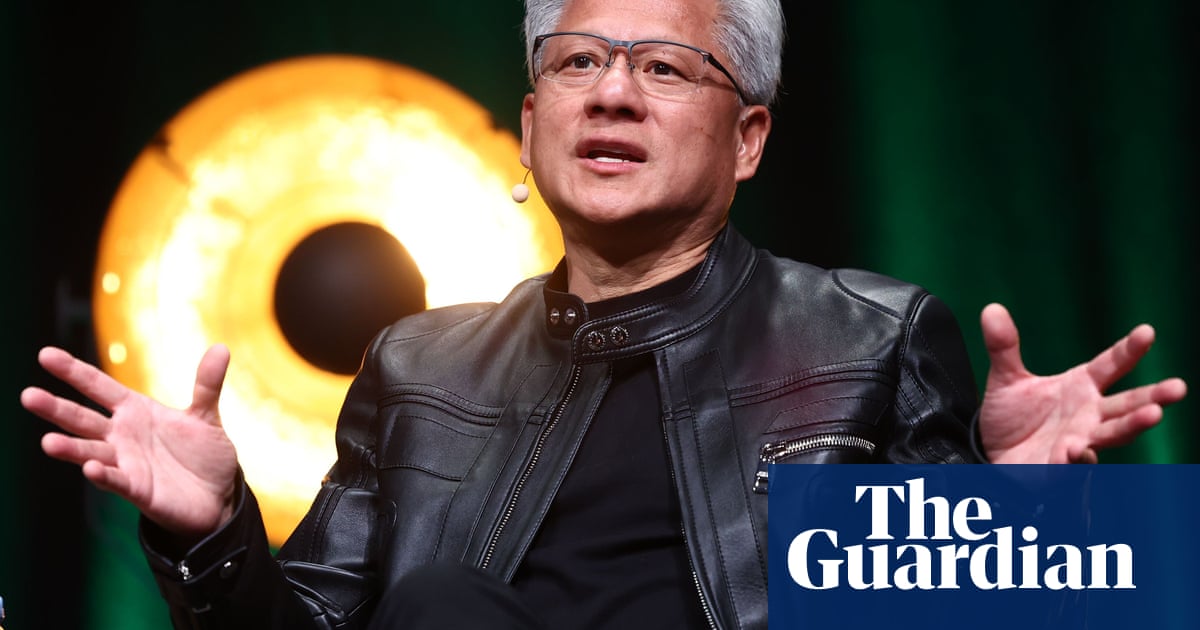Technology shares climbed on Thursday, buoyed up by strong results fromNvidia, despite the AI chip company’s boss warning over the rise of Chinese rivals.
The Stoxx Europe tech index rose by 0.8% on Thursday as a result of Nvidia’s financial report, with the Dutch semiconductor equipment maker ASML rallying by 2.4%. In the US, futures for the tech-focusedNasdaqclimbed 2%, while shares in Nvidia itself jumped 6% in pre-market trading.
The boost to tech and artificial intelligence stocks came hours after Nvidia beat Wall Street forecasts, withquarterly revenues jumping 69% to $44bn (£32.6bn). The company also said it expected deals in the Middle East to start to fill a gap left by the loss of Chinese business.
In April the US president, Donald Trump, said that he was restricting AI chip exports toChina, in effect barring Nvidia from selling its H20 AI chips to Chinese firms and blocking a major source of its revenue.
Nvidia’s chief executive, Jensen Huang, warned thatChinese rivals were benefiting from the void left by US firmsbeing forced to abandon the market due to US trade restrictions. “The Chinese competitors have evolved,”Huang told Bloomberg Television. He added that Huawei, which had been blacklisted by the US government, had become “quite formidable”. “Like everybody else, they are doubling, quadrupling capabilities every year,” Huang said. “And the volume is increasing substantially.”
While the US government policy is meant to keep AI technologies out of the hands of Chinese actors, Huang said local firms are simply finding other options. “You cannot underestimate the importance of the China market,” Huang said. “This is the home of the world’s largest population of AI researchers.”
Nvidia said it expects to miss out on $8bn in revenue in the second quarter as a result of Trump’s trade restrictions.
Tech investors were also optimistic after a US trade court ruledagainst Trump’s sweeping tariffs regime, in a move that could ultimately block the president’s sweeping trade levies. But there is further uncertainty ahead, with the White House having already filed an appeal against the decision, issued by judges from the New York-based court of international trade.
Meanwhile, shares in Tesla, another leader in artificial intelligence technology, rose 2.6%, after the company’s chief executive,Elon Musk, confirmed he would formally leave his role in the Trump administration.
Musk has been leading the “department of government efficiency” (Doge) since January, which ruthlessly cut state spending across a number of public departments and agencies. Heannounced in April he would be stepping backafter seeing Tesla’s earnings plunge and failing to win a supreme court race in which hespent millions of dollars supporting a Republicancandidate.
